According to the latest statistics from the world steel association, the world's crude steel production increased 10 percent in March. Crude steel production in 67 major steel producing countries has reached 145m tonnes, a tenth consecutive month of year-on-year growth. Crude steel production has been rising, driving up the price of iron ore. This gives a false impression that the international steel market appears to have fully emerged from the depths of the international financial crisis and appears to be "producing and selling is prosperity both".
As welded pipe, API 5l, carbon steel pipe, piling pipe, stainless steel pipe and other products production services vendors, Shinestar Holding Group believes that the current global steel market supply and demand does not change radically, didn't reverse oversupply situation.
Firstly, the global economy remains weak and growing less optimistic. Authorities, according to the assessment of the current world economic outlook is improving, but there are still some downside risks, the global economic growth is still had a lower relative to their historical average. As a result, the global steel market is recovering from a temporary recovery that is not sustainable.
Secondly, the prospect of global steel demand is unpromising because of national policy constraints. The organization for economic cooperation and development evaluation says trade restrictions, uncertainty about the economy, tax policy, interest rate changes and currency exchange rate fluctuations and other factors, is the short-term risk constitute the international steel market. In terms of trade restrictions, the recent global trade protectionism, some economies set steel imports the lowest price and import quotas, distorted the normal steel trade, the international steel trade growth all the way down.
Thirdly, the increase in the output of the main iron ore suppliers and the stocks of the docks has increased the supply glut, putting pressure on the price of steel raw materials.
Finally, the global steel industry faces some long-term challenges. In the northern hemisphere, for example, the aging of the population, circular economy and green development and the digitization of the modern economy mean that the amount of steel used is falling. In addition, the global glut of steel capacity has become more acute, with major countries trying to defuse production capacity. On the other hand, nearly 40 million tons of steel capacity is still being built, and production is expected to start in three years, adding to the current supply glut. For most steelmakers, steel is being sold as a "cabbage price", a tough financial situation and a difficult transition for companies.
In these respects, the world's steel industry is recovering from a weak recovery and the supply glut has not reversed. Not only that, it is also threatened by overcapacity. Maintaining the healthy and sustainable development of the steel industry requires concerted efforts from all walks of life.
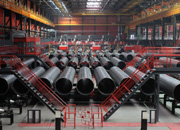 Threeway Steel is known as a professional supplier engaged in manufacturing and distributing a wide range of steel pipe, and our headquarter located the central part of China – Hunan and six associated factories throughout China.
Threeway Steel is known as a professional supplier engaged in manufacturing and distributing a wide range of steel pipe, and our headquarter located the central part of China – Hunan and six associated factories throughout China.
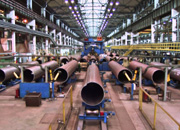 Threeway Steel is known as a professional supplier engaged in designing, manufacturing and distribution of a wide range of steel products with the headquarter located the central part of China – Hunan and six associated factories throughout China.
Threeway Steel is known as a professional supplier engaged in designing, manufacturing and distribution of a wide range of steel products with the headquarter located the central part of China – Hunan and six associated factories throughout China.
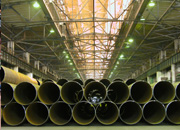 Threeway Steel is known as a professional supplier engaged in designing, manufacturing and distribution of a wide range of steel products with the headquarter located the central part of China – Hunan and six associated factories throughout China.
Threeway Steel is known as a professional supplier engaged in designing, manufacturing and distribution of a wide range of steel products with the headquarter located the central part of China – Hunan and six associated factories throughout China.
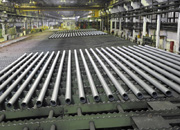 Threeway Steel is known as a professional supplier engaged in designing, manufacturing and distribution of a wide range of steel products with the headquarter located the central part of China – Hunan and six associated factories throughout China.
Threeway Steel is known as a professional supplier engaged in designing, manufacturing and distribution of a wide range of steel products with the headquarter located the central part of China – Hunan and six associated factories throughout China.
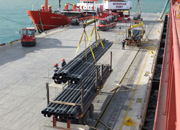 Threeway Steel is known as a professional supplier engaged in designing, manufacturing and distribution of a wide range of steel products with the headquarter located the central part of China – Hunan and six associated factories throughout China.
Threeway Steel is known as a professional supplier engaged in designing, manufacturing and distribution of a wide range of steel products with the headquarter located the central part of China – Hunan and six associated factories throughout China.

